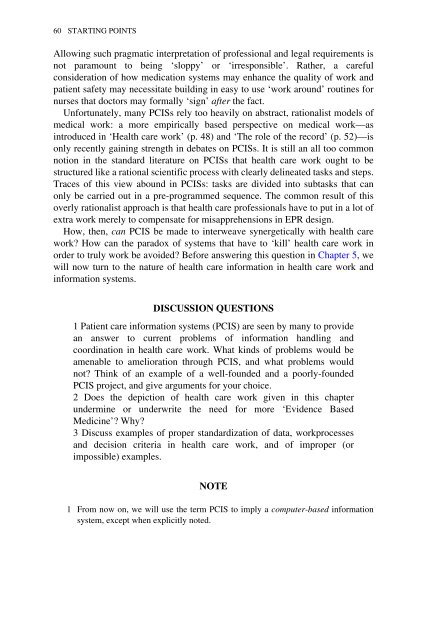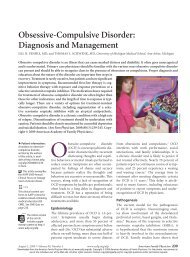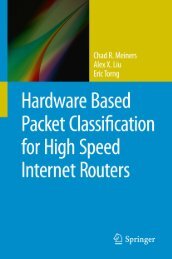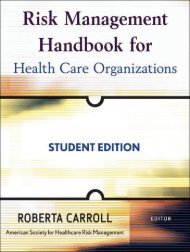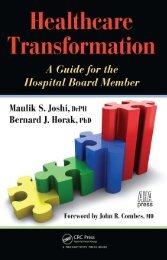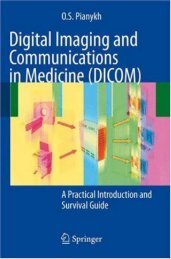Health Information Management: Integrating Information Technology ...
Health Information Management: Integrating Information Technology ...
Health Information Management: Integrating Information Technology ...
Create successful ePaper yourself
Turn your PDF publications into a flip-book with our unique Google optimized e-Paper software.
60 STARTING POINTS<br />
Allowing such pragmatic interpretation of professional and legal requirements is<br />
not paramount to being ‘sloppy’ or ‘irresponsible’. Rather, a careful<br />
consideration of how medication systems may enhance the quality of work and<br />
patient safety may necessitate building in easy to use ‘work around’ routines for<br />
nurses that doctors may formally ‘sign’ after the fact.<br />
Unfortunately, many PCISs rely too heavily on abstract, rationalist models of<br />
medical work: a more empirically based perspective on medical work—as<br />
introduced in ‘<strong>Health</strong> care work’ (p. 48) and ‘The role of the record’ (p. 52)—is<br />
only recently gaining strength in debates on PCISs. It is still an all too common<br />
notion in the standard literature on PCISs that health care work ought to be<br />
structured like a rational scientific process with clearly delineated tasks and steps.<br />
Traces of this view abound in PCISs: tasks are divided into subtasks that can<br />
only be carried out in a pre-programmed sequence. The common result of this<br />
overly rationalist approach is that health care professionals have to put in a lot of<br />
extra work merely to compensate for misapprehensions in EPR design.<br />
How, then, can PCIS be made to interweave synergetically with health care<br />
work? How can the paradox of systems that have to ‘kill’ health care work in<br />
order to truly work be avoided? Before answering this question in Chapter 5, we<br />
will now turn to the nature of health care information in health care work and<br />
information systems.<br />
DISCUSSION QUESTIONS<br />
1 Patient care information systems (PCIS) are seen by many to provide<br />
an answer to current problems of information handling and<br />
coordination in health care work. What kinds of problems would be<br />
amenable to amelioration through PCIS, and what problems would<br />
not? Think of an example of a well-founded and a poorly-founded<br />
PCIS project, and give arguments for your choice.<br />
2 Does the depiction of health care work given in this chapter<br />
undermine or underwrite the need for more ‘Evidence Based<br />
Medicine’? Why?<br />
3 Discuss examples of proper standardization of data, workprocesses<br />
and decision criteria in health care work, and of improper (or<br />
impossible) examples.<br />
NOTE<br />
1 From now on, we will use the term PCIS to imply a computer-based information<br />
system, except when explicitly noted.


